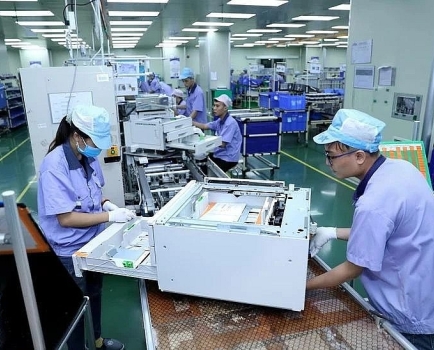Vietnam hospitals a hotspot of antibiotic-resistant bacteria
Tue, 02 Jul 2019 16:18:00 | Print | Email Share:

Vietnamese hospitals are teeming with antibiotic-resistant bacteria, and the chances of infection rise with a patient’s length of stay, a study found.
A little more than half of 2,233 patients in 12 hospitals in 2017 and 2018 were carriers of multiresistant intestinal bacteria, which in this case were carbapenem-resistant enterobacteriaceae (CRE), a group of broad-spectrum antibiotics used to treat severe or high-risk bacterial infections, the study by Swedish and Vietnamese scientists published in the Journal of Infection of information analytics firm Elsevier found.
"In our study, we see a high prevalence of multiresistant intestinal bacteria in Vietnamese hospitals," Prof Håkan Hanberger of the department of clinical and experimental medicine at Sweden’s Linköping University, who led the team of researchers, said.
"The longer the patients are in hospital, the greater is the risk that they have been infected by intestinal bacteria resistant to carbapenems."
The chance of infection rises by 4.2 percent per day a patient stays in the hospital, the study estimated.
The mortality rate among newborns who needed intensive care was five times higher for those who had a hospital-acquired infection and were carriers of CRE, Hanberger said.
The study concluded that there was an epidemic spread of multiresistant intestinal bacteria in Vietnamese hospitals with rapid transmission to patients.
Measures such as improvement in hand hygiene, use of sterile working methods and isolating patients infected with such bacteria must be taken to reduce the transmission, it recommended.
"But even if we do everything right, it will take a long time to get infections down to an acceptably low level," Hanberger said.
WHO has listed Vietnam among the countries with the highest rate of antibiotic-resistant infections. This conclusion was also reached by IMS Health, a U.S.-based healthcare data company, in a 2015 report on global antibiotics use.
The rise of antibiotic-resistant bacteria in Vietnam has been attributed to the country’s increased antibiotics sale in recent years. Indiscriminate, unnecessary prescriptions and use of antibiotics are partly to blame, experts said at a health conference in Hanoi last year.
By: Phan Anh/VnExpress
---------------------------------------------
Same category News :













